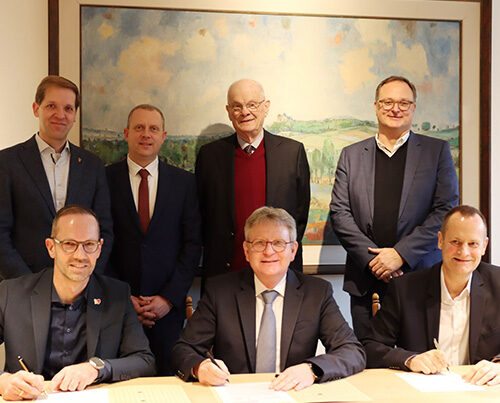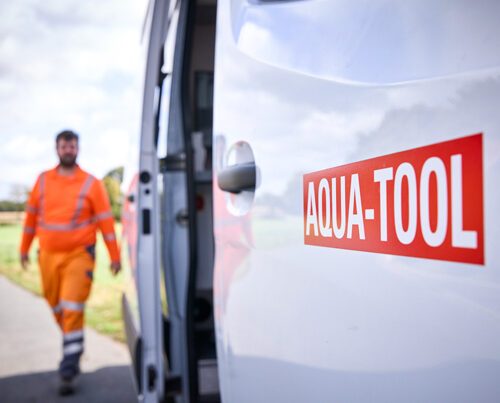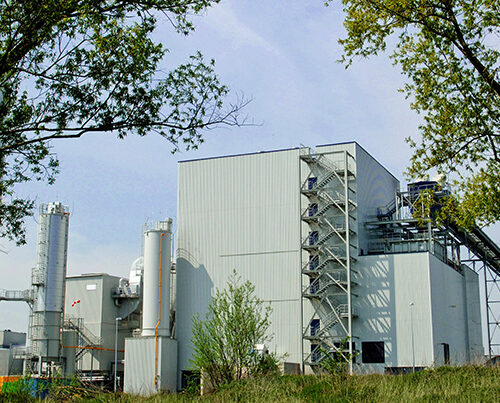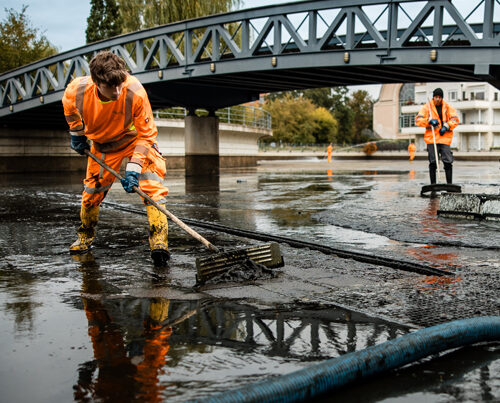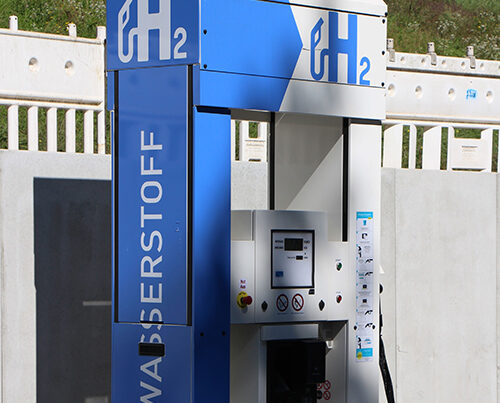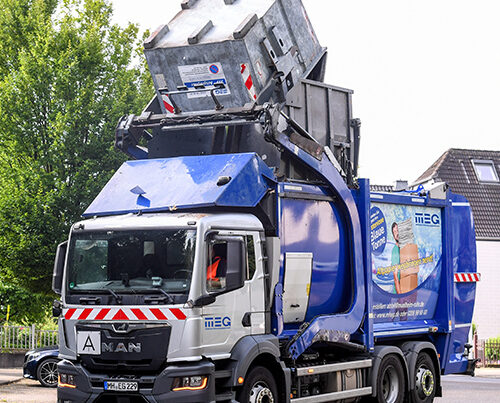RE:VIEWS: The energy transition is most certainly the biggest project that Germany is focusing on at the moment. If you look at the costs, the statements in some of the election manifestos and, indeed, the line being taken by the new EU Commission, you almost get the impression that the energy transition is more a thing of the past. How do you see all this?
We must be able to re-examine and discuss these topics. It’s important to do this and I believe this is a good thing. The general direction of the Green Deal is not being called into question here in Europe. Subjects such as nuclear power and coal-fired power stations were being brought up during the election campaign – subjects that most people thought had already been sorted. People will continue to argue about the different ways and different timelines that can be taken in the future but the general direction will remain the same.
To actually question the fundamentals of these subjects would be really worrying as far as investments are concerned. When we talk about the energy transition project, we are not talking about the next five years but the next 20 years. We need certainty so we can plan well into the future.
RE:VIEWS: The traffic light coalition was responsible for energy policy over the last three years or so. Do you feel there were some points that were neglected during this time or that need to be readjusted?
What worked well was the expansion of renewable energies. We’ve now reached 60% here in Germany. Unfortunately, what was neglected during this period were the system services. When a high percentage of a country’s energy production involves fluctuating renewable energies, then it needs to have a reliable system in place so that the lights don’t go out. And this has to be financed. The country’s reserve capabilities should have been expanded more quickly. The same is true for the expansion of the grid and the further development of regulations. As far as the expansion of the grid is concerned, we need to take another look at how incentives for providers can be used to speed things up.
“When we talk about the energy transition project, we are not talking about the next five years but the next 20 years. We need certainty so we can plan well into the future.”
Erik Höhne, Board Spokesperson of the ENERVIE Group

The expansion of renewable energies in Germany has reached 60%.
RE:VIEWS: So how is the whole thing being financed?
It’s important to be honest and tell customers – and I mean both private as well as industrial and business customers – that the energy transition costs money. At the end of the day, it is the customers that must bear the costs. And, if it’s clear that it’s too much for them, then the government must introduce measures to provide relief. Words such as electricity tax and network charges come to mind here.
RE:VIEWS: Do changes need to be made to the way the energy markets are regulated and designed?
We need suitable capacity mechanisms. An energy market controlled simply by the price charged for the amount of electricity consumed does not create incentives to make it more attractive to build up reserve capabilities. I think this is pretty much indisputable now. However, the proposals put forward by the old government regarding this matter came very late on in their term. The collapse of the traffic light coalition then stopped it in its tracks. It will be interesting to see how the new government deals with this subject over the next few months.
RE:VIEWS: Besides the mammoth task of the energy transition, the energy market has also been impacted by covid and the war in Ukraine. What things do you think have gone well?
Well, first, you have to say here that there was no blueprint for how to respond to such events. And so it really was a success just how fast we reacted. There were intensive and direct communications between the energy sector and the government – there had been nothing quite like it in the past.
One good example here is just how quickly the Government recognised how important it was to protect gas importers. This prevented there being a ripple effect along the whole of the supply chain and the unforeseeable impact this would have had on prices and availability. If they hadn’t reacted, the market would probably have come to a standstill.
Another thing that was definitely good was the second step that was taken – namely to look at the customers and to ask what the population and the economy can afford without this leading to a problem in society.
RE:VIEWS: And what didn’t go so well? What have you learned from all of this?
These were often technical matters, such as the gas procurement levy that was binned just two days before it was due to come into effect. Every energy provider in Germany had already spent a great deal of time and money preparing their systems for the introduction of this levy.
The price caps – which are, in principle, the correct instrument to use – also involved a huge amount of time and money. We stepped in for the state here. These were actually a form of state support and cannot be organised via energy providers. These are tasks that energy providers are not prepared for at all. It’s important that such things are organised differently in the future.
RE:VIEWS: So, let’s turn to the ENERVIE Group. As far as you are concerned, what were the specific challenges you had to face?
The risk management systems that we used in the past were designed to deal with price fluctuations of just a few euros within a month. Not with the several hundred euros that we experienced during the energy price crisis. This meant that we had to readjust our systems really quickly. We did this well – especially as the ENERVIE Group has always followed a risk-averse, long-term procurement strategy.
This meant that we had relatively low prices during the crisis and a relatively high average price for a while after the crisis was over when wholesale prices fell again. We felt the impact of the discount companies on customers during this time as they normally procure their energy on an extremely short-term basis.
“As far as the carbon issue’s concerned, we’ve been focusing on other controllable forms of energy.”
Erik Höhne, Board Spokesperson of the ENERVIE Group
RE:VIEWS: So not without a hitch then?
As far as the new normal is concerned: yes. The wholesale markets have still not returned to pre-crisis levels. And prices are still fluctuating far more than they used to. We’ve started to get used to this new normal. Neither the prices nor the fluctuation levels will return to what they were.
RE:VIEWS: Let’s take a look at a subject that was the core business of many energy providers for a long time, namely production. The ENERVIE Group has significantly reduced its capacities. How do you see this developing in the future?
We actually stopped using coal quite a while before Germany officially ended the use of coal across the country. As far as the carbon issue’s concerned, we’ve been focusing on other controllable forms of energy. One example here is the gas-fired power station that we operate with Statkraft in Herdecke. And then we have a pumped storage power plant in Finnentrop in the Sauerland region. This pumped storage power plant is an ideal component for the energy transition. Whenever there is a lack of renewable energy production and all gas-fired power stations are running to capacity, then we can produce electricity at attractive conditions.
ERIK HÖHNE
Born in 1967, the board chair of the ENERVIE Group is responsible for finances, trade, production and sales. A mechanical engineer, he has been on the board since 2010 and board spokesperson since 2016. Erik Höhne held various positions at RWE Energie, RWE Power and the ENVIA M Group before joining the ENERVIE Group.
RE:VIEWS: And in the future?
We can certainly imagine investing more in this field of controllable energy production. This is simply because we have both the know-how and the locations to do this. Existing production units could have the potential to facilitate synergies if the right incentives are in place to invest.
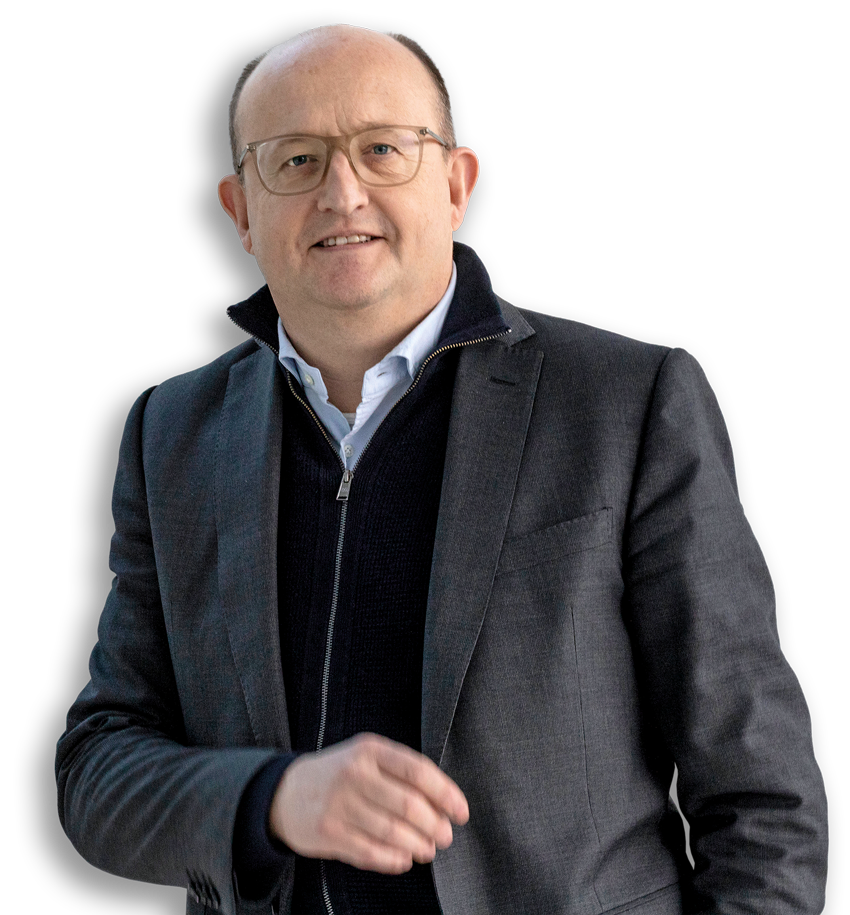
RE:VIEWS: Do you also see yourselves as being a provider of reserve capabilities?
Yes, that’s one of our tasks – but perhaps for other storage units as well. These would more likely be battery storage units.
RE:VIEWS: Your home market – South Westphalia – is well known for its medium-sized industrial businesses. Medium-sized firms have been complaining about the high costs of energy and the high levels of red tape. Another topic they’re unhappy about is the long period of time needed to hook up their solar power systems. You know their complaints.
Connecting the solar power systems isn’t going as smoothly as it should – as is the case with other providers. This can simply be put down to the fact that we’ve been overwhelmed by the boom and that we now have to catch up with the work needed to adjust the capacities in our organisation. The number of applications have, more or less, increased twentyfold over the last five years.
RE:VIEWS: So, what specific services can you offer your medium-sized industrial customers to make their lives a little easier?
Well, first of all, it’s important to remain in close contact with our customers. Procurement strategies have to be readjusted far more often during a crisis. Our other products are also there to support our customers in difficult situations to help boost their business success. This includes, for example, energy efficiency or hydrogen as a decarbonisation tool. And we’re not just talking about our standard product that we’ve been offering for years.
“Being a successful private-sector company, REMONDIS often sees things from a different angle. It illuminates topics from an additional perspective that is a useful addition to the public-sector point of view.”
Erik Höhne, Board Spokesperson of the ENERVIE Group
RE:VIEWS: So, let’s move to our last topic of public private partnerships or PPPs. Besides the various local authorities, REMONDIS owns just under 20% of the ENERVIE Group. An important factor here are ENERVIE’s water management activities. I can well imagine that you sometimes have to explain yourself to your colleagues at the municipal utility companies.
It should be said that it is somewhat unusual to see REMONDIS as a shareholder in an energy provider. For many local authorities, REMONDIS is a well-known and trusted partner for the recycling sector.
I can say that REMONDIS is good for us as a shareholder. Being a successful private-sector company, REMONDIS often sees things from a different angle. It illuminates topics from an additional perspective that is a useful addition to the public-sector point of view. And, on top of this, it is good for a company per se to have a professional and stable shareholder. This is all the more true when an industry, such as the energy sector, has to cope with massive investments.
RE:VIEWS: You’ve almost answered my next question. We’ve turned full circle now: it’s all about how the energy transition is to be financed. This is a huge challenge, in particular for local authorities who are not exactly known for being flush with funds. Is more private-sector money not needed here?
Around 1.2 trillion euros need to be invested in Germany’s energy sector by 2035, an unimaginably high sum. We will have to use retained profits to cover a certain amount of this money. Our shareholders must accept that not all our profits will be paid out to them. The rest of this sum must be covered with external capital and financing partners. In our case, REMONDIS’ stability and professionalism will be really useful.
Here at the ENERVIE Group, we are set up in such a way that we can say, at the moment, that we want to cover the upcoming investments ourselves. We will be investing 570 million euros over the next five years. The majority of this will be going on expanding the network but we will also be working on production, heat and contracting. We want to do this with external capital and by strengthening our equity capital by retaining earnings.
Around 1.2 trillion euros need to be invested in Germany’s energy sector by 2035.
RE:VIEWS: Are the shareholders okay with this?
We will, of course, always distribute some of our profits to them. It’s all about finding the right balance. So far, we’ve always managed to do this amicably.
RE:VIEWS: Mr Höhne, many thanks for the interview.
About the ENERVIE Group
The ENERVIE Group is a group of companies owned by Mark-E, the Stadtwerke Lüdenscheid (a utilities firm) and the network company ENERVIE Vernetzt as well as further subsidiaries. The Group’s companies are responsible for supplying the town of Hagen and large parts of the Märkischer District – a total of around 450,000 local inhabitants – with water. Furthermore, the ENERVIE Group also supplies its customers in its catchment area with electricity, gas, heat and drinking water. In 2024, the Group had a workforce of more than 1,100 employees and a turnover of almost 1.5 billion euros. The main shareholders are the cities of Hagen (42.66%) and Lüdenscheid (24.12%), and REMONDIS with its 19.06% share. The remaining 14.16% is owned by further local authorities located in the catchment area.
Image credits: © ENERVIE







